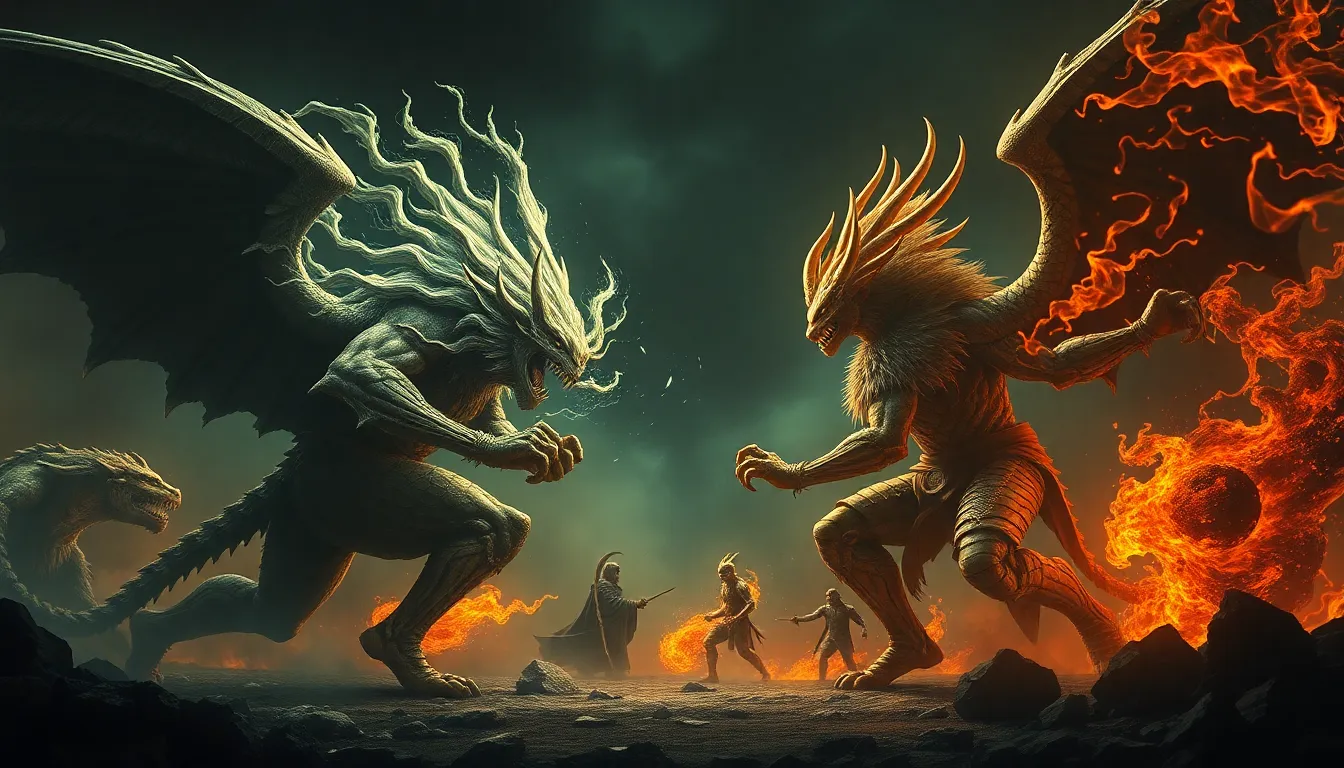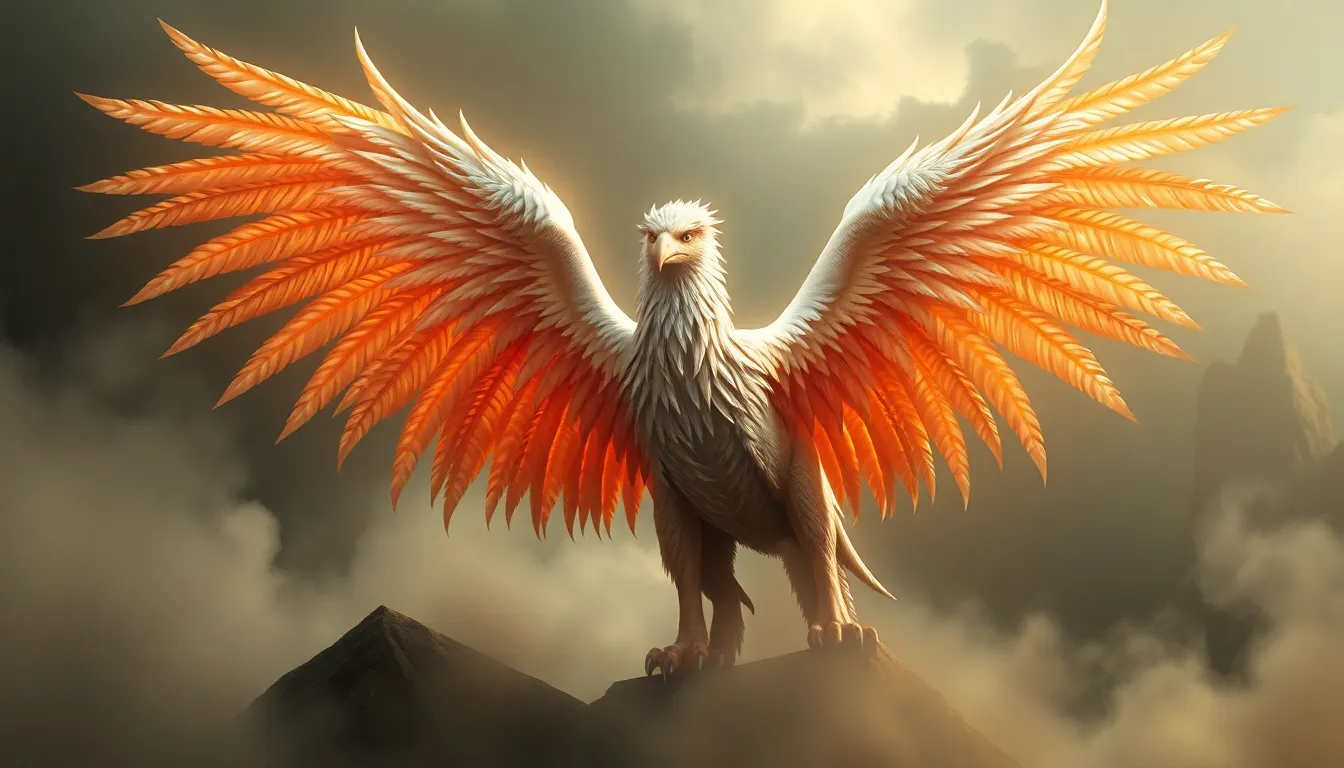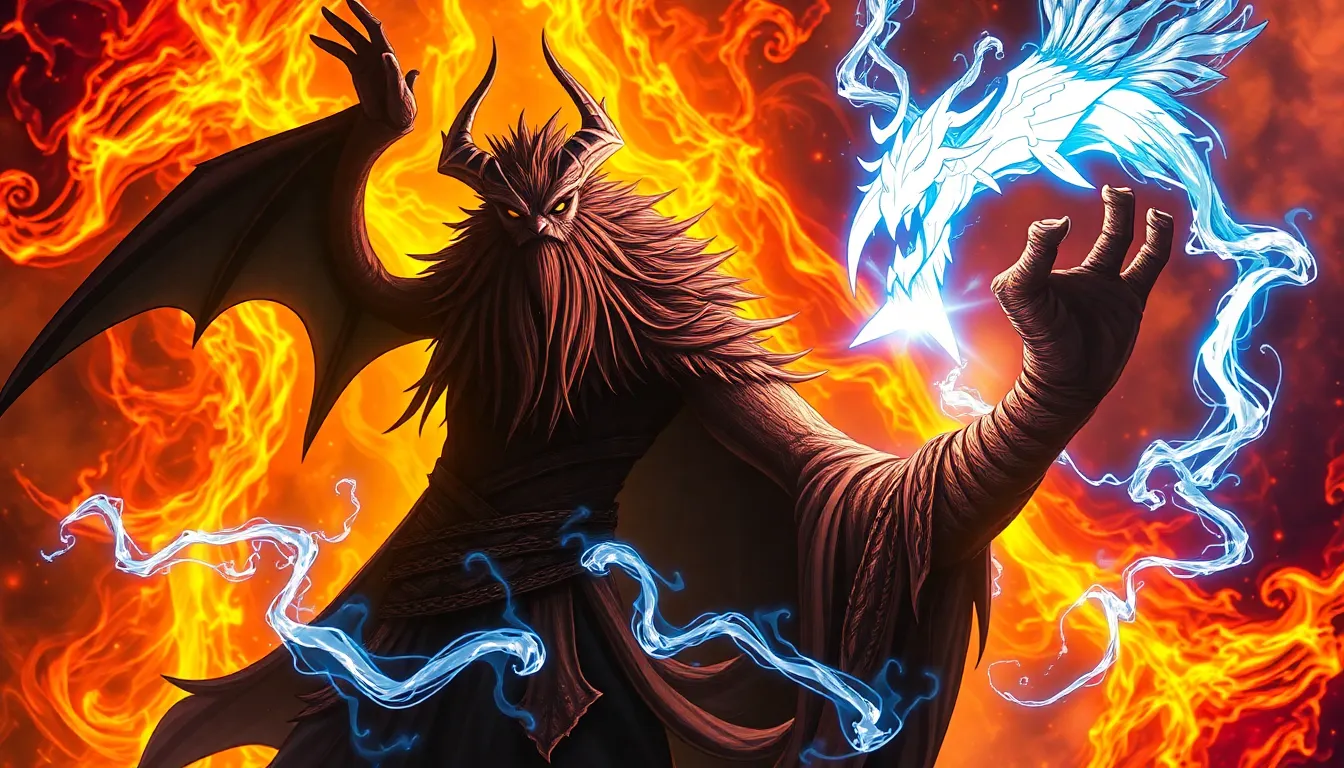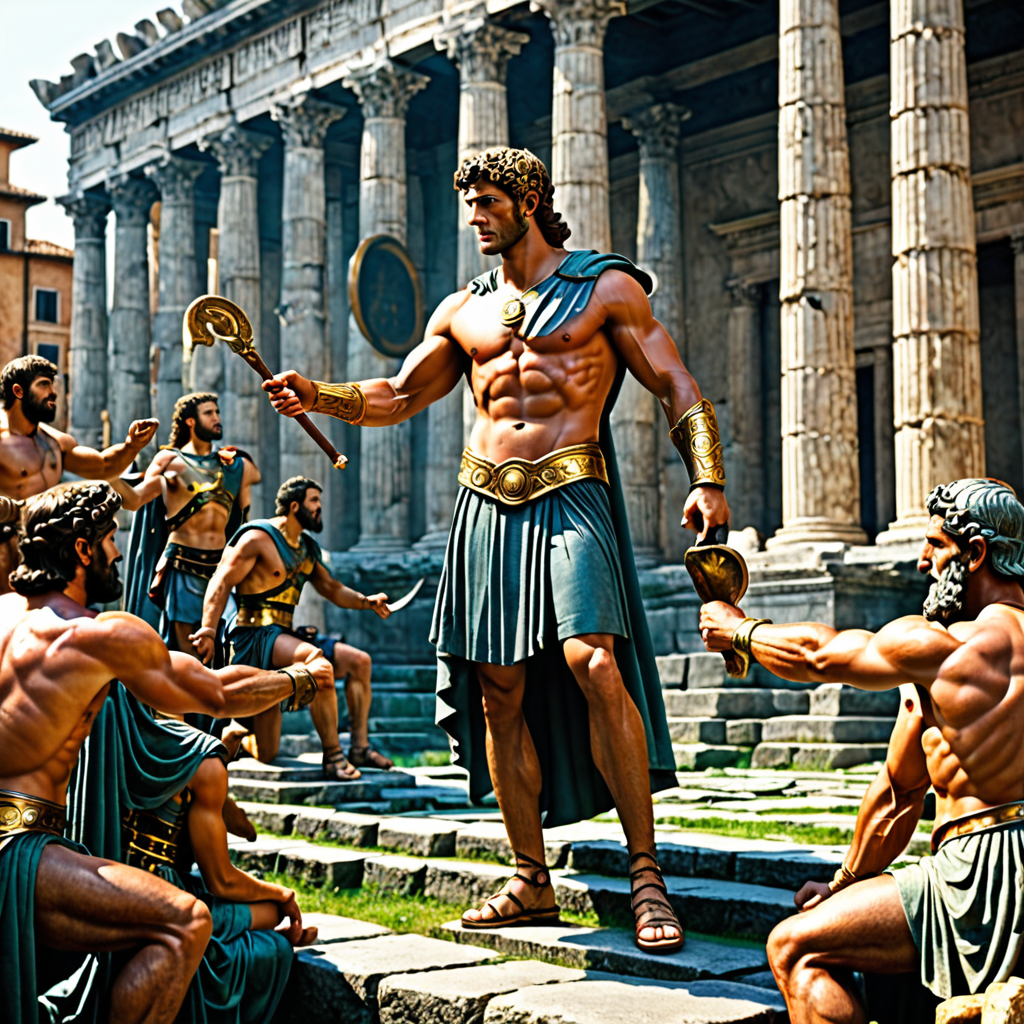Epic Showdowns: The Most Legendary Mythological Battles You’ve Never Heard Of!
Introduction: The Allure of Mythological Battles
Mythological battles have captivated human imagination for centuries, serving as a reflection of cultural values, fears, and aspirations. These conflicts often symbolize the struggles between good and evil, chaos and order, and the mortal versus the divine. While many are familiar with legendary showdowns such as Achilles vs. Hector from the Trojan War, numerous lesser-known but equally compelling battles weave through the tapestry of mythology across different cultures.
This article delves into some of these epic confrontations, exploring the themes and characters that make them resonate through time. From the primordial struggles of the gods to the tragic fates of heroes, each battle reveals something profound about the societies that birthed them.
The Roots of Mythological Conflict: Understanding the Causes of War in Mythology
The themes leading to battles in mythology often revolve around deep-seated human emotions and societal norms. Common causes include:
- Honor: Many battles are fought to uphold personal or familial honor.
- Revenge: Conflicts often arise from a desire for vengeance against perceived wrongs.
- Jealousy: Rivalries stemming from jealousy can ignite catastrophic wars.
Across cultures, these themes manifest in various ways. For instance, in Greek mythology, the Trojan War was ignited by Paris’s abduction of Helen, sparking a quest for honor and revenge. Similarly, in Norse mythology, the Aesir and the Vanir’s conflict arose from misunderstandings and power struggles between the two divine factions.
The Battle of the Titans: Gaia vs. Uranus
In Greek mythology, the conflict between Gaia, the Earth, and Uranus, the Sky, serves as a pivotal moment in cosmic history. Uranus, fearing the power of his children, the Titans, imprisoned them within Gaia. In response, Gaia conspired with her son Cronus, who castrated Uranus, leading to the birth of new gods and the eventual overthrow of Uranus’s reign.
This battle is significant not only for the physical struggle but also as a metaphor for the transition from primordial chaos to order in the Greek pantheon. It highlights themes of parental conflict, the cyclical nature of power, and the emergence of new generations.
The War of the Gods: The Aesir vs. The Vanir
The conflict between the Aesir and the Vanir represents a fascinating chapter in Norse mythology. Initially, these two factions of gods waged war against one another, driven by misunderstandings and rivalries. The Aesir, representing order and civilization, clashed with the Vanir, who embodied fertility and nature.
After a prolonged struggle, both sides recognized the futility of their conflict, leading to a peace treaty that involved the exchange of hostages. This resolution symbolizes the importance of balance and cooperation between different forces in the universe, a theme that resonates throughout Norse lore.
The Epic Duel: Cuchulainn vs. Ferdiad
In Irish mythology, the tragic showdown between Cuchulainn and Ferdiad is a heart-wrenching tale of friendship and fate. As warriors of the Ulster Cycle, both men share a deep bond, yet they find themselves on opposing sides during the conflict over the kingdom of Ulster.
When faced with the necessity of combat, Cuchulainn and Ferdiad engage in a fierce duel that ultimately leads to Ferdiad’s death. This battle encapsulates themes of heroism, destiny, and the devastating consequences of war, illustrating the tragic reality that even the closest friends can become enemies.
The Clash of the Chariots: The Battle of Kurukshetra
The Battle of Kurukshetra, a central event in the Indian epic Mahabharata, is renowned for its complexity and moral dilemmas. This epic conflict features two factions of a royal family—the Pandavas and the Kauravas—engaged in a war for succession and justice.
Key figures such as Arjuna and Krishna play crucial roles, with Krishna serving as Arjuna’s charioteer and divine guide. The battle not only showcases epic warfare but also explores profound philosophical themes, including duty, righteousness, and the nature of reality. The outcome shapes the destiny of not only the warriors involved but also the entire Indian subcontinent.
The Serpent and the Dragon: The Battle of Quetzalcoatl and Tezcatlipoca
In Aztec mythology, the struggle between Quetzalcoatl, the Feathered Serpent, and Tezcatlipoca, the Smoking Mirror, represents a cosmic battle of duality. These two deities embody opposing forces—Quetzalcoatl symbolizes life and creation, while Tezcatlipoca represents darkness and chaos.
Their confrontations are rich with symbolism, reflecting the balance between light and dark, order and disorder in the universe. This battle not only determines the fate of the gods but also influences the world of humans, showcasing the interconnectedness of divine and earthly realms in Mesoamerican beliefs.
The Heroic Stand: The Battle of the Giants in Greek Mythology
The Gigantomachy, or the Battle of the Giants, is a significant myth in Greek mythology that illustrates the struggle between the Olympian gods and the Giants, offspring of Gaia. This epic battle was fought to establish the supremacy of the Olympian deities and ensure the stability of the cosmos.
Major figures like Zeus, Athena, and Heracles played pivotal roles in this confrontation, showcasing their divine powers and heroism. The victory of the Olympians over the Giants symbolizes the triumph of order over chaos, reinforcing the gods’ authority and shaping the course of Greek mythology.
Underworld Showdowns: The Epic Confrontation of Orpheus and Hades
Orpheus’s journey to the Underworld to retrieve his beloved Eurydice is a poignant tale that highlights themes of love, loss, and the afterlife. Armed with his enchanting music, Orpheus confronts Hades, the ruler of the Underworld, in a desperate bid to reclaim his wife.
This confrontation underscores the power of love and art in overcoming unimaginable odds. However, the tragic outcome serves as a reminder of the limits of human agency in the face of fate, illustrating the profound emotional depth inherent in mythological narratives.
Conclusion: The Legacy of Mythological Showdowns in Modern Culture
The legendary battles of mythology continue to influence contemporary storytelling across various mediums, including literature, film, and video games. The themes of honor, revenge, duality, and the struggle between good and evil resonate with modern audiences, reflecting timeless human experiences.
As we explore these epic confrontations, we gain insight into the values and beliefs of ancient cultures, revealing their enduring relevance in our understanding of the human condition. The legacy of these mythological battles teaches us about the complexities of life, the nature of conflict, and the pursuit of identity in an ever-changing world.




